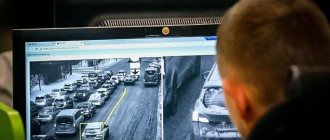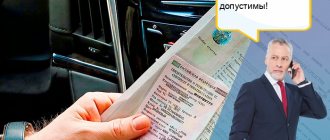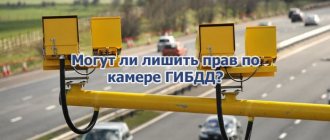What gives bailiffs the right to confiscate a car and what is an arrest?
This right to serve as bailiffs is assigned by the Federal Law “On Enforcement Proceedings” (hereinafter referred to as the “FZ”) of 2021. This is called a “seizure of property.” Specifically, Article 80 of this Federal Law says the following:
1. A bailiff, in order to ensure the execution of a writ of execution containing demands for property penalties, has the right, including during the period established for the voluntary execution by the debtor of the requirements contained in the writ of execution, to seize the property of the debtor.
A car is formally a movable property. This also applies, like everything in this article, to motorcycles, mopeds, scooters, tractors and other types of personal equipment.
But it is important to understand that an arrest does not necessarily mean the seizure of a car. Bailiffs don’t always confiscate a car. Often it is in the custody of the debtor (that is, during the sale the debtor is allowed to continue to dispose of it). And sometimes they can even simply restrict the right to use a car (Part 4 of Article 80 of the Federal Law).
How is arrest imposed?
The procedure for seizing property is quite simple:
- you have debts for which your car and other property may be seized,
- for such debts, a court order is formed or a court decision is made with the corresponding writ of execution,
- the writ of execution is handed over to the bailiffs,
- The bailiff service initiates enforcement proceedings and issues an arrest order.
Arrest should not be confused with confiscation. Formally, these are different things, although in both cases the car can be taken away. Confiscation is a procedural measure within the framework of criminal law, and is carried out by a court decision in a criminal case, in contrast to arrest, which is carried out as part of enforcement proceedings, including in administrative and civil cases (fines, bank loans and others).
No one can just take a car based on the mere existence of debts! To do this, 2 important formalities must be observed:
- Enforcement proceedings must be initiated against you (see the list of proceedings on the official website of the FSSP),
- and as part of this proceeding, an arrest order must be issued (it is also displayed as a result of a search by full name on the bailiffs website).
Only based on the result of the decision within the framework of the proceedings, bailiffs can take the car in 2021.
You will also be interested in:
- Pay the traffic police fine 1 ruble and it burns? Is this possible and what are the consequences?
- Bailiffs writing off fines from cards - which banks don’t charge them?
- A fine for average speed - is it legal and how to appeal?
How to check a car for arrest by the bailiffs?
To independently check whether a car is under arrest, use one of these methods:
- Send your request to the bailiff service at your place of residence.
- Request information from your local traffic police department.
- Check the data on the official website of the traffic police or on the website of the bailiffs.
For an online request, you will need to enter one of these parameters:
- VIN (vehicle identification number);
- body number;
- chassis number.
Can a car be confiscated for traffic fines?
Yes. For almost any unpaid fines, including those from auto-fixation cameras. But for this it is important to understand the terms after which the delay appeared, and how long it lasts.
These deadlines look like this:
- the driver or owner is given an administrative decision with a fine and given 70 days to pay (10 for entry into force, 60 directly for payment), if the person has not appealed the fine,
- after this period, the fine can be transferred to the bailiffs (and fines are not always transferred in practice),
- the bailiff, who is responsible for the information about the debt, initiates enforcement proceedings on paper and is obliged to give 5 days for voluntary payment,
- after this period, a decision may be made to collect funds from the debtor’s accounts - then the bailiff makes inquiries to banks (at random and not all) about the availability of the debtor’s accounts; if any are found, the money is debited from the card or accounts,
- further, if it was not possible to collect the debtor’s money directly, then an arrest may be imposed, only within the framework of which the car can be taken away to be sold against the debt.
Important! If the amount of your debt is less than 3,000 rubles, then arrest cannot be imposed (Part 1.1 of Article 80 of the Federal Law). We are talking specifically about each enforcement proceeding - that is, about each unit of debt, and not the total amount of all debts.
This also applies to civil debts.
How legal are FSSP and traffic police raids?
The fact is that they are not entirely legal! True, there is one exception. According to paragraph 5 of paragraph 3 of Order of the Ministry of Internal Affairs No. 565 of August 29, 2018, establishing the procedure for interaction between the Ministry of Internal Affairs and the FSSP, traffic police officers participate in:
...in identifying vehicles wanted as part of enforcement proceedings.
That is, the inspector has the right to stop a wanted car and send the driver to nearby bailiffs. If there is no bailiff nearby, the traffic police officer is obliged to ask the driver about the actual location of the wanted vehicle and transfer the information to the FSSP.
An overview of the document is here. Source text is here.
If you lose a civil lawsuit for collection
If your debt arose as a result of a claim against you by a third-party organization or individuals, then everything here is similar to traffic police fines, and the car can be taken away by bailiffs if the amount of debt is more than 3 thousand rubles.
The most common categories of debts for which FSSP cars are taken away:
- recourse claim from the insurance company under compulsory motor liability insurance (a particularly common case is when the culprit did not provide a copy of the European protocol),
- a claim for compensation for damage in an accident when the culprit does not have auto liability insurance, therefore, he himself is responsible for the damage.
How to remove an arrest
In order to remove it, you must contact the territorial division of the FSSP, which seized the car.
Subsequence:
- find out the specific body and official who made the decision;
- obtain from him an explanation of the reasons for the arrest;
- receive a copy of the writ of execution;
- familiarize yourself with the contents of the writ of execution or the notary’s writ of execution;
- eliminate the reason for imposing the restrictive measure as soon as possible;
- report the results to the bailiff;
- provide documentary evidence of the elimination of the reasons that form the basis for the application of the sanction;
- obtain a copy of the decision to lift the arrest.
It is important to remember that the resolution is sent to the traffic police. In the case where the debtor has several prohibitions from different bailiffs and according to different executive documents, the removal is made after eliminating each of the reasons that served as the basis for their issuance. This is done by issuing a separate ruling in each case.
Can they take the car for a loan if you don’t pay it?
Yes. This is a type of civil case. Moreover, we are not necessarily talking about a car loan - if any credit, loan or other obligations are not repaid, the debt can be collected at the expense of the debtor’s car. But only bailiffs. And there is a difference between a simple loan and a car loan when the car is pledged as collateral.
For a simple loan, the car is sold (sold at auction) by the bailiffs themselves, and the proceeds are used to pay off the debt. The difference then goes to the debtor's account.
In the case of a car loan, where the car is pledged to the bank, the scheme is slightly different, but even here the bank cannot simply take away the car. First, the bank is obliged to go to court to issue a ruling to recover funds from the debtor. As in all the schemes above, by court decision the writ of execution goes to the bailiffs.
But the difference here is that the seized car, which was taken by the bailiffs from the debtor, is not sold by the bailiffs themselves, but is transferred to the bank, and the bank sells it as collateral. At the same time, the buyer can transfer money to the account of the debtor directly, but only in the same bank, and the debtor will have secondary access to the account - the priority will be to write off the debt at the expense of the seized and sold car as collateral.
Legality of inventory of property on roads
The first and main assessment of such actions by the traffic police and bailiffs is ILLEGAL.
Now let’s analyze the situation in more detail, resorting to articles of the laws of the Russian Federation.
Illegal for traffic police
Administrative regulations of the Ministry of Internal Affairs of the Russian Federation (hereinafter referred to as the Ministry of Internal Affairs of the Russian Federation) regulate the actions of road service employees. These activities should be designed to:
supervision of compliance by road users with requirements in the field of road safety (quote from Order of the Ministry of Internal Affairs of the Russian Federation of March 2, 2009 “No. 185”).
Paragraph 63 of the Administrative Regulations of the Ministry of Internal Affairs of the Russian Federation clearly describes all cases in which a traffic police officer can stop a car driver. None of the listed options is a basis for checking on the road the driver’s debt obligations to the court.
According to paragraph 67 of the Regulations, the road patrol officer is obliged to voice the reason for the stop. And if the purpose of the stop is to check the driver for debts, then he should be notified about this, which does not happen.
Illegal for bailiffs
Paragraph 1 of Article 24 of the Federal Law “On Enforcement Proceedings” states that the bailiff, before making an inventory of the property, is obliged to notify the debtor of the future arrival. And during the inventory or seizure of property, at least two independent witnesses must be present (traffic police officers cannot be witnesses in a particular case) (Article 59 of the Federal Law “On Enforcement Proceedings”).
Important: Article 33 of this law also states that bailiffs have the right to make an inventory of property not only at the debtor’s place of residence, but also at the location of the property. And this supposedly gives them the right to take your property simply on the road. Based on this, bailiffs and the traffic police carry out similar actions. And here there is already one “but”:
In order for the bailiff to take an inventory of your property without your permission, he needs a special court decision on the invasion of private property, the so-called warrant. Only with it can the bailiff force you to give up your property to pay off the debt. In addition, the court decision must indicate the location of such actions. And don’t forget, only with the participation of independent witnesses.
Note! According to the Federal Law “On Enforcement Proceedings”, there is a sequence established by law for collecting the debtor’s property:
1st stage: funds in rubles, in foreign currency.
2nd stage: movable property (household appliances, cars, etc.).
3rd stage: real estate.
You have the right to refuse the employees of the Bailiff Service if they do not have a court decision on the forced recovery of property. And if you are officially employed, the bailiffs are required to start deducting from your salary, and not carry out an inventory of property on the road.
As for traffic police officers, they generally cannot stop you on the road without a reason established by the Administrative Regulations.
If a car is the only source of income
It would seem that the logic is obvious - how will the debtor pay off his debts if his only opportunity to earn money on these debts is taken away?!
The subtlety here is that if the car is the main (not necessarily the only) source of income for the debtor, then the bailiffs do not have the right to take it away. Article 446 of the Civil Procedure Code directly speaks about this.
But there is a limitation - if you have even a slightly expensive car, then they can already take it away. According to the law, for the car to be inviolable against seizure by bailiffs, its value should not exceed 100 times the minimum wage. For 2021 it is just over 11 thousand rubles. Accordingly, if your car costs more than 1.1 million rubles, then they will be able to take it away from you for debts.
Can bailiffs deprive you of your rights?
No. Bailiffs are generally not authorized to deprive the right to drive, as well as any other. You should not be afraid that the driver will be deprived of his license when meeting a bailiff on the road.
- Firstly, for debts, rights, as I mentioned above, are not deprived of rights, but only the right to drive a vehicle is suspended.
- Secondly, this procedure is desk-based.
If the amount of fines owed exceeds 10 thousand rubles, and the driver does not pay it voluntarily, then the bailiff may suspend the right to drive vehicles. To do this, he issues an appropriate resolution, hands over one copy of the resolution to the driver against signature, and sends the other to the traffic police.
But driving a car in case of temporary restriction of the right to drive is punishable by deprivation of the right to drive for up to one year or community service of 50 hours.
How to avoid having your car seized by bailiffs?
Here we are talking specifically about the seizure of the car by the bailiffs, and not when it is pledged to the bank. The most obvious way to avoid losing your car if bailiffs take it is to get rid of it. Property that does not belong to the debtor will not be able to be taken away... With the exception of exceptions, there is an important subtlety in this issue.
According to the law, you can get rid of property in 2 ways:
- sell a car,
- give it away.
But you can also rent out a car, and for free (otherwise, under the lease agreement, you will have to pay money, which must be used to pay off debts).
The subtlety is that the sale or gift of a car can be considered fictitious and illegal - only for the purpose of hiding property from the bailiffs. To do this, the bailiff sues to recognize the transaction as fictitious, and then the car will be taken away from the buyer. And imagine if on your part and his part the sale was initially in good faith!
If the car was alienated after the start of enforcement proceedings and, even more so, after the FSSP issued a seizure order, then the transaction will be declared invalid with a high degree of probability. Especially if it is proven that you continue to use the car, as well as family or other ties between you and the buyer/donor/tenant.
Other possibilities result in the inability to use the machine:
- disassemble the car into parts and provide the bailiffs with only the body for seizure as part of the arrest,
- hide the car.
Something else useful for you:
- Is it possible to drive a car after revocation of a driver’s license and for how many days?
- Is it possible and how to buy a credit car correctly?
- Why is a fine for using a cell phone while driving illegal?
How to behave in such raids
1. If you are stopped by a traffic police officer, before asking for documents, he must tell you the reason for the stop. If the reason does not correspond to legal grounds, this is the topic of another article. Let's stop at the fact that you presented your driver's license.
2. If you were checked using the Bailiff Service database and it turned out that you are a debtor, this does not mean that you have to give up all your money and property because you were found.
3. You must demand that the bailiffs provide you with a court decision, which, specifically based on your debt, allows the bailiff to seize your property at the place of its location. Of course, they will not have such a document.
4. If the bailiffs decide to draw up a protocol, no problem. Having drawn up the protocol, they are obliged to provide it to you for review:
- in the column: “witnesses” - write that they are absent if they are not present. Write in such a way that it will be impossible to write anything in later;
- in the column where the participant writes his comments, describe the situation: you were stopped on the road (stopped by a traffic police officer without a legal reason for the stop), you were not provided with documents on the basis of which an inventory of property should have been carried out. In your notes, use all the information you know.
5. You must conduct the conversation confidently. Under no circumstances agree to have your property taken from you. If the conversation drags on, call the traffic police helpline (the inspector must provide you with a number), and also call the police.
Consequences of buying a seized car
Persons who carry out fraudulent activities take advantage of the gullibility of law-abiding citizens. Therefore, cases of purchasing vehicles containing restrictions on ownership rights are not uncommon.
Buying from a private person
Buying such a vehicle may not bring joy, but disappointment from the purchase. It will be impossible to re-register it to a new owner. Also, when buying “by proxy”, there is a risk of being stopped by a traffic police inspector; after checking the documents, he will reveal information about the arrest and take measures to remove the car from use. Which will entail the loss of both transport and the money paid for it.
Purchase by auction
When purchasing a car at a public auction where such property is sold, you can be sure that there will be no problems with registration in the future. This happens because it is being “legally cleared” and the previous owner does not have the right to make claims against the new owner. The new owner is considered a bona fide buyer.
Based on the above, we can conclude that the seizure procedure is a last resort measure to ensure payment of the debt. The powers and circle of persons who can seize a car were considered. The procedure for the actions of officials involved in ensuring the implementation of federal legislation regulating the relationship between the debtor and the collector has been determined.









